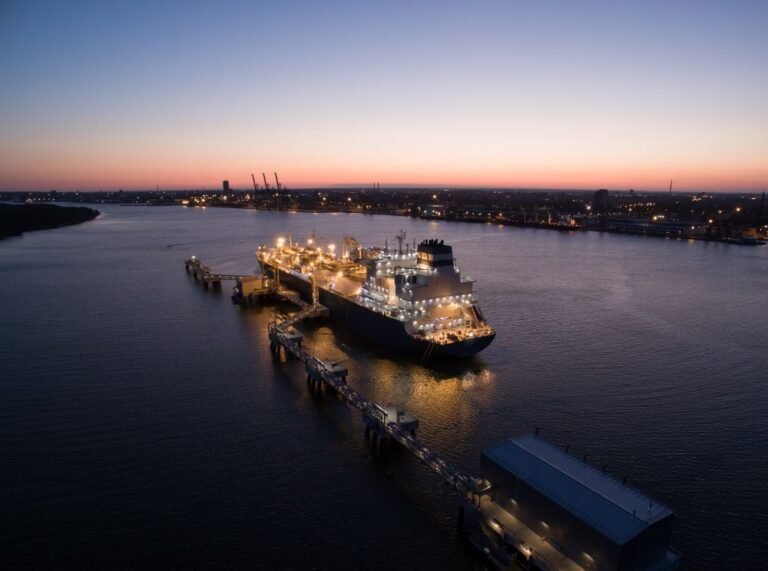The European Commission Funds Studies for CO2 Terminal in Klaipėda, Lithuania
The European Commission has signed a grant agreement with Lithuanian liquefied natural gas (LNG) terminal operator KN Energies (KN) for technical and commercial studies for a future CO2 terminal in Klaipėda, Lithuania.
Under the agreement, the European Commission will provide more than €3 million in funding, covering 50% of the study costs required to establish the CO2 terminal in Klaipėda.
Project Overview
The CO2 terminal in Klaipėda is part of a cross-border carbon capture, transport, and storage (CCS) value chain being developed in Lithuania and Latvia by the CCS Baltic Consortium. The project, declared a Project of Common Interest (PCI) in 2023, is eligible for funding from the Connecting Europe Facility (CEF) program for Energy.
The anticipated timeline includes a final investment decision (FID) by the end of 2027, with commercial operations expected to begin in 2030. The project aims to reduce CO2 emissions in Lithuania and Latvia by 24.9 million tonnes over its lifespan.
Project Execution
CO2 will be collected from industrial emitters in Lithuania and Latvia, transported to the Klaipėda terminal, and then shipped by sea to designated offshore storage sites in the North Sea and/or Danish waters.
The project is currently in the pre-FEED phase, with FEED studies set to commence in Q1 2026 to further refine the technical design of the infrastructure.
Statement from KN Energies CEO
“We are honoured to receive the European Commission’s support for the technical and commercial studies of the CO2 terminal in Klaipėda. This Grant Agreement marks a significant milestone in our journey towards creating a sustainable carbon capture, transportation and storage (CCS) value chain in the Baltic region,” said Darius Šilenskis, CEO of KN Energies.
“By collaborating with our partners, we are committed to advancing national, regional and EU’s energy and climate goals, and paving the way for a greener future. This initiative not only underscores our dedication to environmental sustainability but also highlights the importance of cross-border cooperation in tackling global challenges.”
Consortium and Collaboration
The CCS Baltic Consortium, formed in 2022, includes Akmenės Cementas, KN Energies, Larvik Shipping, Mitsui O.S.K. Lines, and SCHWENK Latvija SIA. The consortium collaborates with gas transmission system operators Amber Grid and Conexus Baltic Grid to assess CO2 transportation via an onshore pipeline.
Future Plans
Market consultations were launched on June 4 to gauge interest in using the CO2 terminal infrastructure, with plans for non-binding and binding Open Seasons for capacity allocation in the coming years. The Klaipėda CO2 terminal will serve as a multimodal hub with an initial design capacity of up to 2.8 million tonnes of CO2 per annum.
KN Energies and Klaipėda LNG Terminal
KN Energies, the operator of the Klaipėda LNG terminal, has been active since 2014. The terminal features the FSRU Independence, a 450-meter-long berth, a gas pipeline, and a gas metering station. KN Energies recently selected AB Kauno tiltai to work on the terminal’s electrification project.

